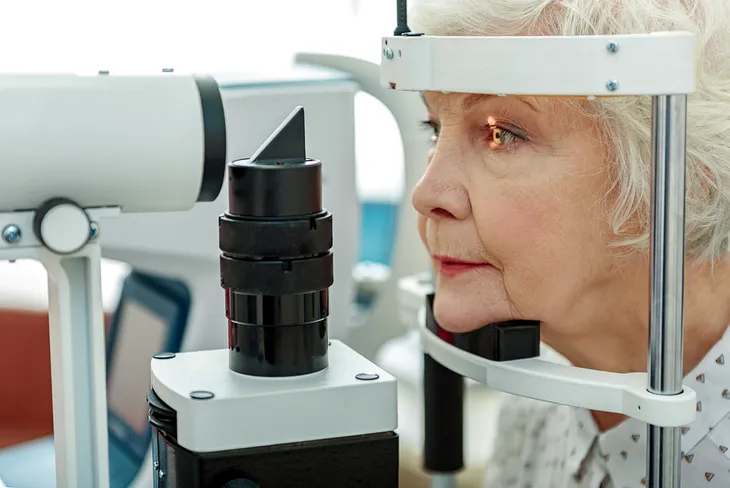- Annual medical tests can help screen for and detect health risks and conditions early on.
- Some medical tests become more important later in life, such as screening for certain cancers or heart disease.
- Other risk factors and conditions may lead to more frequent tests and exams at the recommendation of your doctor.
Many people only visit their doctor when they’re feeling unwell, waiting until symptoms become chronic or disruptive before scheduling an appointment. Others make a point of routine tests and exams based on their age, general health, and other factors. The sheer number of medical tests available can be overwhelming, but healthy and young people should only need a few annual tests. Your doctor may even perform several of them at once if you usually receive an annual checkup or physical exam.
What Are Medical Tests For?
The purpose of medical tests can vary. For healthy individuals, tests and exams can help screen for otherwise undetected risks and conditions, ideally catching them in their early stages before they progress. Others, such as those who are pregnant, aging, or with known conditions, may need tests to monitor and manage their symptoms and conditions. Regardless, medical tests serve an important purpose: keeping you as healthy as possible.
Do You Need To Get Tests Every Year?
Not every person needs to get the entire roster of tests each year. Certain tests, like cancer screenings, become more important as you get older, while others, like dental exams, are usually recommended at least annually for all ages.
A young, healthy person getting extra testing can lead to further expensive exams and treatments for conditions that weren’t bothering them anyway. To know which exams are necessary annually, speak to your physician for a professional opinion. In any case, we’ve provided a list of common annual tests below.
Regular Blood Tests
Many blood tests can be used to determine the health of an individual, but some are commonly done on an annual basis as basic screening exams. Blood nutrient tests, for example, show the nutrient levels of your blood. These tests look for blood levels of vitamins and minerals and other nutrients like electrolytes, omega fatty acids, iron, and vitamin B12, for example.
Other tests, such as total blood counts, look for indicators of common conditions like anemia. Comprehensive metabolic panels can likewise measure 14 different substances found in your blood, like glucose and calcium, which can identify any abnormalities and potential health concerns. Lipid panels and blood glucose tests are also commonly used to screen for diabetes and other health concerns.
Cholesterol
As mentioned above, a lipid panel is a common blood test. High cholesterol doesn’t often present symptoms but may lead to an increased risk of cardiac issues. A complete cholesterol test measures four types of fat present in your blood, including low-density lipoprotein cholesterol, high-density lipoprotein cholesterol, triglycerides, and total cholesterol.
Young, healthy individuals likely only need cholesterol screenings every 5-years, but older or higher-risk people may need annual testing. Talk to your doctor to find out how often you should be screened.
Blood Pressure
Physicians commonly check blood pressure during annual checkups. They may perform this test more regularly if you’re at risk of hypertension and, as such, cardiac issues. They may even recommend checking your blood pressure at home.
Blood pressure tests measure the pressure in your arteries and result in two separate numbers. One is the systolic pressure or the blood flow when your heart contracts, while the other is the diastolic number, representing the resting pressure in your arteries between heartbeats.
Hearing Test
Although some people notice or suspect hearing issues, others don’t notice their hearing gradually worsening. Regular hearing tests can help physicians detect these issues and recommend changes to prevent the condition from becoming disruptive. For example, people who experience hearing loss may be referred to a specialist or recommended earplugs, lifestyle changes, or hearing aids.
Most people don’t notice hearing issues until they’re about 50, at which time more frequent testing may be suggested. Otherwise, your physician will likely perform quick checks during checkups and inquire about any changes.
Eye Exams
Like their hearing, many people don’t notice their vision gradually worsening until it becomes a problem. Annual eye exams can help detect vision issues early, allowing an optometrist (an eye doctor) to offer treatments or strategies to help reduce and mitigate symptoms.
Common vision issues include glaucoma, cataracts, and macular degeneration. That said, regular vision checks aren’t usually required until you’re about 40 years old unless you have a known risk of vision problems.
Weight and Height
Your physician may check your weight and height during regular checkups to calculate your body mass index (BMI). Your BMI is an estimate of your total body fat and can help indicate whether you have a high risk of certain health conditions like osteoporosis or diabetes.
If you have any known or suspected health problems like heart disease or thyroid dysfunction, your physician may do regular weight checks to help inform their treatment or management strategies.
Electrocardiogram
An electrocardiogram (ECG) is a test that records the electrical activity of your heart. It measures the electrical impulse that travels through your heart, which can provide information about your heart rate and rhythm.
Most healthy people won’t need regular ECGs, but individuals with known heart issues may receive ECGs as often as every six months. ECGs are common tests for those with arrhythmia, hypertension, heart enlargement, and some non-cardiac conditions like lung disease or electrolyte imbalance.
Skin Exams
Skin exams are usually performed during annual checkups, though it’s also a good idea for you to do at-home self-exams on a regular basis. Your doctor will closely examine your skin for abnormalities to screen for and detect skin cancers early. Regular checks can help doctors determine if you have new moles or spots or if older ones have changed in size or shape. Certain individuals are at higher risk of skin cancer and may need more regular skin exams. Risk factors include:
- Bad sunburns as a child
- Light complexion
- Many moles, freckles, or other growths
- A history of skin cancer
Thyroid Tests
Your thyroid is responsible for regulating your metabolism, body temperature, brain function, and heart rate, which means that thyroid issues like hypothyroidism or hyperthyroidism can have significant effects on short and long-term health. One way to protect your thyroid health is with thyroid tests.
Thyroid tests, such as the TSH blood test, may be part of your annual routine if you’re at risk of abnormal thyroid levels due to preexisting conditions, medications, or other medical treatments.
Pelvic Exam and Pap Smear
Pelvic exams are usually part of annual checkups for biologically female individuals. Your physician will inspect your pelvic organs and parts to assess your gynecological health. These exams can help screen for and detect health problems like sexually transmitted infections, ovarian cysts, and cancer.
Pap smears may also be a part of your annual pelvic exam, although they are more typically performed every 3-years. If you’ve had previously abnormal pap smear results or have other risks, your physician may perform pap smears more frequently.
Prostate Exam
Prostate exams often involve blood tests measuring prostate-specific antigens as well as a manual rectal exam by your physician. This routine screening helps to detect prostate cancer or early cancer risks.
Depending on the individual’s health profile and history, annual prostate exams may begin as early as age 40. The good news is “prostate cancer is very treatable and early detection of prostate cancer is key to treatment and recovery,” says Rochester Regional Health.
STI Screening
The CDC recommends that sexually active individuals get tested for STIs annually. If you have new or multiple sexual partners, you may need to get tested even more frequently.
STI screening helps to detect and treat common STIs such as gonorrhea or chlamydia, which can sometimes be asymptomatic but cause health issues later on. If you’re not sure if you should get screened for STIs, talk to your doctor.
 novak.elcic / Shutterstock
novak.elcic / ShutterstockDental Exam
During a dental exam, your dentist will look for a variety of factors that affect your oral and general health. Common issues include:
- Decayed or damaged teeth
- Cavities
- Gum health
- Bone and joint health
- Growths, cysts, or signs of cancer
Dentists perform exams by visually inspecting your mouth, updating your health history, inspecting the surrounding areas for inflammation, and completing X-rays to show less visually-obvious oral issues. Although you can have a dental exam as often as every six months, annual dental exams are usually sufficient for healthy individuals.
 hedgehog94 / Shutterstock
hedgehog94 / ShutterstockAnnual Tests for Good Health
Not all people require each of these medical tests annually, although annual tests like dental and pelvic exams are generally standard. Some of them become more important as you age or develop higher risk factors.
If you have any questions or concerns relating to your personal health situation, or if you’re not sure if you require one or more of these tests, speak to your physician for their professional medical advice.

















